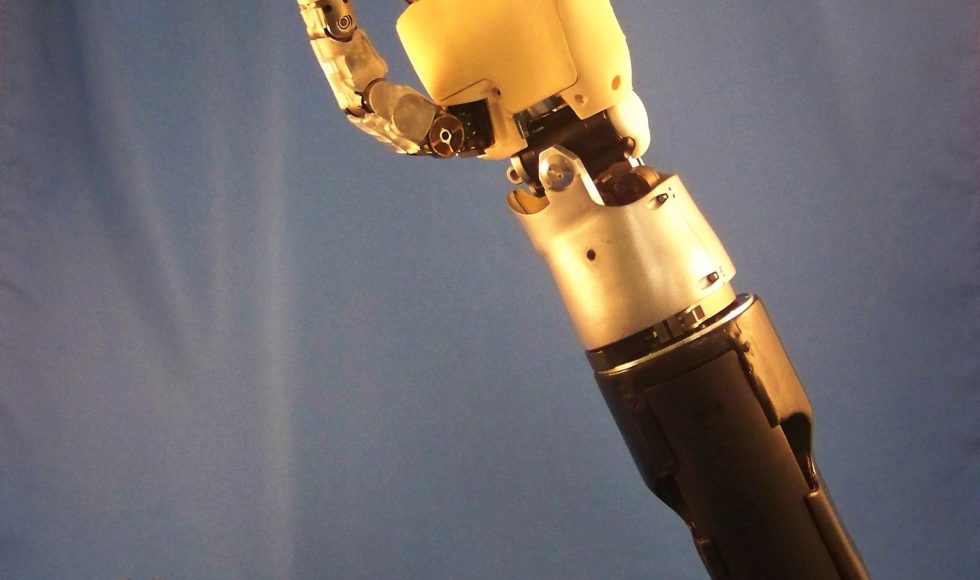By: College of Engineering, Carnegie Mellon University
A team of researchers from Carnegie Mellon University, in collaboration with the University of Minnesota, has made a breakthrough in the field of noninvasive robotic device control. Using a noninvasive brain-computer interface (BCI), researchers have developed the first-ever successful mind-controlled robotic arm exhibiting the ability to continuously track and follow a computer cursor.
Being able to noninvasively control robotic devices using only thoughts will have broad applications, in particular benefiting the lives of paralyzed patients and those with movement disorders.
BCIs have been shown to achieve good performance for controlling robotic devices using only the signals sensed from brain implants. When robotic devices can be controlled with high precision, they can be used to complete a […]
Link: https://www.sciencedaily.com/releases/2019/06/190619142542.htm
Last modified: September 11, 2019



